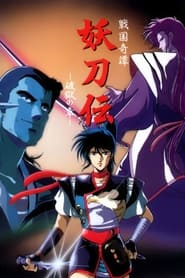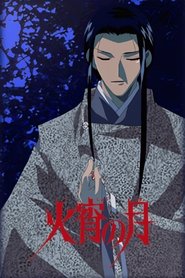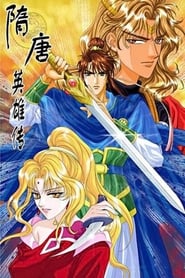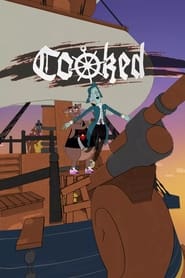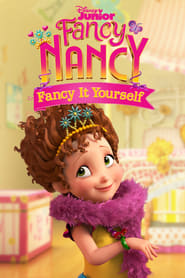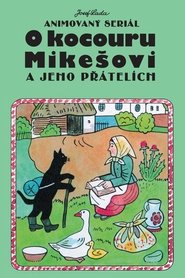Animation TV Series - Page 481
-
カッコカワイイ宣言!
2010
-
Yotoden: Chronicle of the Warlord Period
1987
star 4In the year 1580, a man named Lord Nobunaga Oda sends hoards of unholy armies across Japan, slaying all who stand in their way. A young ninja escapes her villages' destruction with a short sword, one of the three mystical weapons that can end Oda's rule. During her quest, she is joined by two other ninjas who wield the other two weapons of legend, the sacred sword and spear. -
Kashou no Tsuki: Aki Kyougen
1998
When he was young, Arimasa Tsuchimikado rescued an injured cat and wished for it to become human. The cat, Kagetsu, is actually a member of the shape-shifting Kouga tribe and comes to live with Arimasa. Years later, Arimasa is an uneasy presence in his village. The villagers despise him for being half-fox, but he is also the only one able to protect the village against supernatural invasion. Meanwhile, Kagetsu is going through a difficult period where he must choose which sex he will live the rest of his life as, a process he can only complete through sexual intercourse. As pressure from other members of the Kouga clan opposes the wishes in Kagetsu’s heart, Arimasa's village is struck by a large-scale supernatural attack. With his peaceful life threatened, Arimasa will be forced to make undesirable decisions. -
传闻中的白月光 动态漫
2024
传闻中的白月光 动态漫
2024
-
Everlasting God Of Sword
0000
He stood at the pinnacle of the world. Surpassing all since birth in the art of the sword. But fate has left him crippled moments before reaching the apex. But the story continues and the legend will rise again. -
Aroha Bridge
2013
Aroha Bridge
2013
A cartoon that follows the adventures of the Hook family as they navigate the complex and hilarious circumstances growing up in a bicultural and eclectic community. -
隋唐英雄传
2002
-
Barbie: Dream Besties
2024
Meet the Dream Besties: Barbie, Barbie, Teresa, Renee, Daisy, and Ken. They share their dreams, introduce their pets, and tour their awesome dream spaces. -
Kay's Daily Doodles
2023
Kay's Daily Doodles
2023
star 5To all Rhodes Island Operators: "Metalcrab Cafe" is opening soon! Hello, Doctor! How do you like a cup of coffee? -
Cooked
2021
Cooked
2021
star 1.5In 2020, the ghost of Captain Cook awakens. He re-unites with Mahnra, an Indigenous woman's spirit trapped inside the body of a goat. They travel across Australia in search of a cure for a mysterious 250-year-old spell. -
Ensemble Stars!!: Tsuioku Selection - Checkmate
2024
star 10New Ensemble Stars!! web animated series based on the game story "Checkmate". -
Fancy Nancy: Fancy It Yourself
2019
star 6Ooh La La! It's Fancy Nancy! Follow Nancy as she guides everyone on how to add a little more Fancy to anything that's ordinary. -
Those Scurvy Rascals
2005
Those Scurvy Rascals
2005
star 10Those Scurvy Rascals is a children's animated series following the adventures of three underwear obsessed pirates. First aired by Nickelodeon UK in May 2005, it is now broadcast worldwide. The main characters Sissy Le Poop, Smelly Pete and Shark Bait all live on the ship called "The Soiled Pair" and go on a different random adventure in every episode. The series was developed and produced by Blue-Zoo Productions and is owned by Entara. The opening sequence features their ship and the names of the characters. The theme song is as follows: -
I"s
2002
I"s
2002
star 8High schooler Ichitaka Seto is in love with classmate Iori Yoshizuki, but is too shy to tell her. Again and again, he plans to tell her his true feelings, but each time something – usually a misunderstanding of some kind – gets in the way. Things complicate further when Itsuki Akiba – whom Ichitaka was friends with in their childhood before she moved to the United States – returns, her crush on him still intact. -
O Mikešovi
1978
-
ELF Academy
2021
ELF Academy
2021
star 8.5The Equipment: Living Forms, or ELFs, were created over fifty thousand years ago to assist humankind in their combat against the Honkai—the decay. With the project's success, the ELFs soon became sentient, compelling humanity to treat them as near-equals. However, when the Ninth Herrscher laid waste to the planet, almost all traces of ELFs vanished into the Sea of Quanta's endless abyss. Yet, there seems to be a bubble universe where the ELFs' fate has taken a brighter turn. Here, they live peacefully among humans and attend a specialized institution, ELF Academy, where they study as if they were human beings themselves. From Selune's Elegy's chuunibyou tendencies to Blood Embrace's "gangster" shenanigans, the peaceful environment of the academy is guaranteed to provide relief from the depressing state of the main universe. -
Legend of Soldier
2024
-
米小圈动画中国史
2022
米小圈动画中国史
2022


